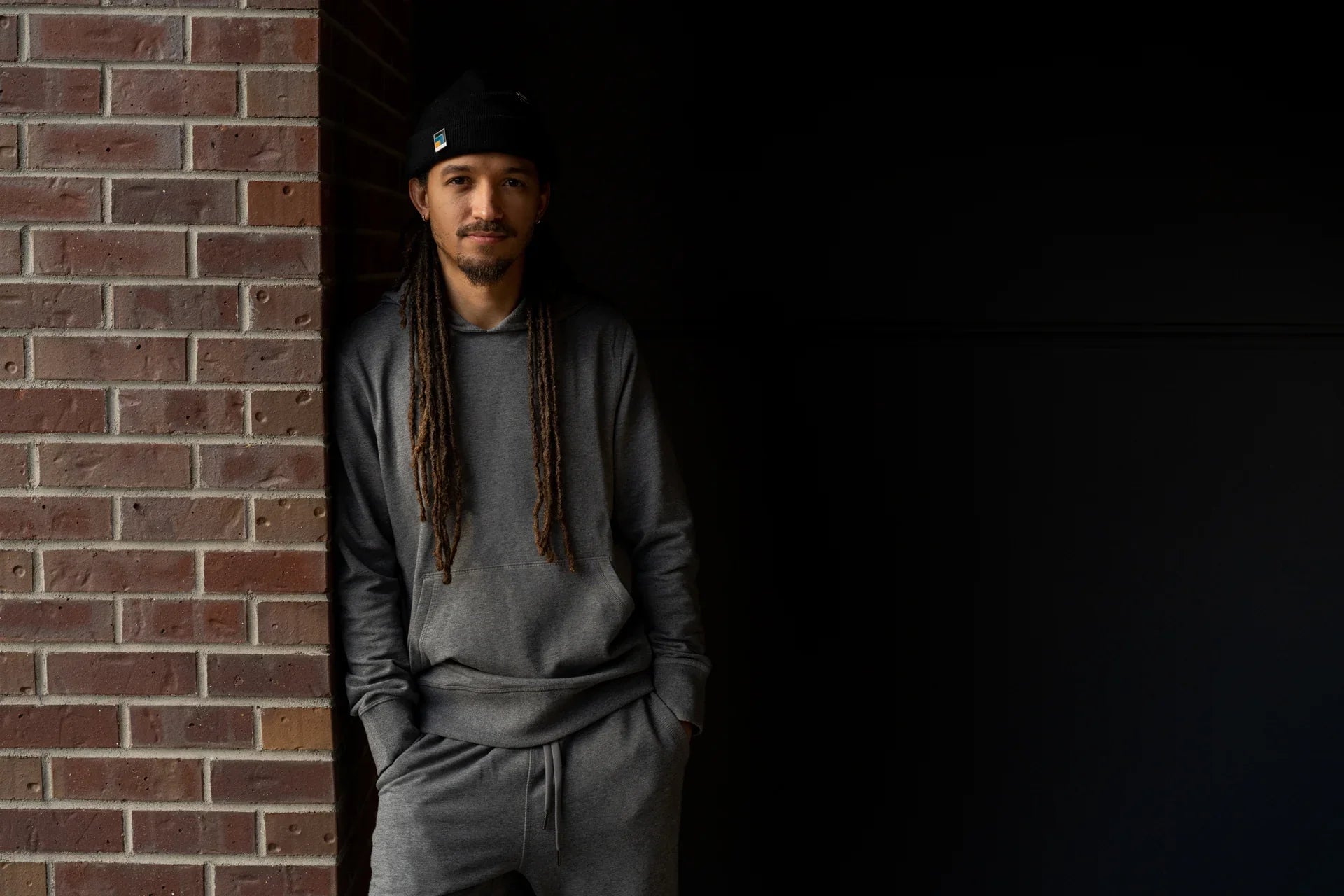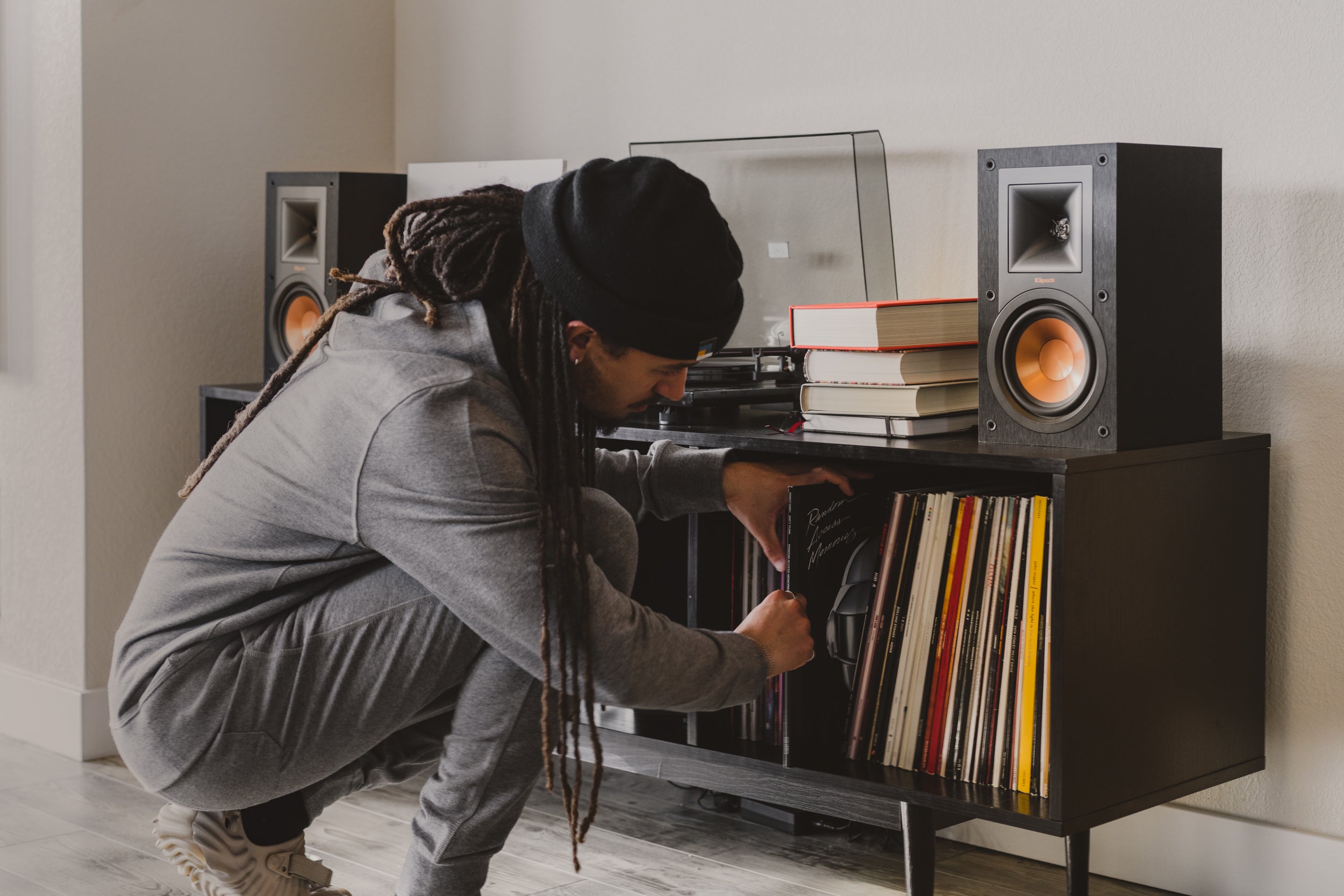Art Director at Crocs working on some of your favourite collaborations.
Interview by Josh Perez
At Foreign Rider, we often find ourselves surrounded by creatives whose brilliance and passion shape our own perspectives. These individuals who, often in just a few interactions, leave an indelible mark on us deserve to be in the spotlight.
We’re big believers that we wouldn’t be here without our community. Sometimes we formerly worked with them, on photo or video shoots, product design, etc. Other times, they’re just friends who like I said, leave an impact on us and what we’re doing.
Our paths initially crossed through the realm of social media, where mutual admiration for each other's work sparked a connection that would eventually become a meaningful friendship. Over the years, I've come to admire Derrick not only for his unmistakable personal style but also for his kindness, unwavering support for fellow creatives, and insatiable thirst for growth.
Despite having spent plenty of time together, I’d never gotten Derrick's full story. To understand what motivates and scares him now as a creative, where the fears lie and what dreams abound, I had to understand how he got started in the first place.
His creative journey is truly remarkable. I got to sit and listen with some whiskey around the fireplace in my home while he talked, and hopefully you get to enjoy this piece in some similar fashion.
INSTAGRAM: @derricktrotman
WEBSITE: www.derricktrotman.com
Josh Perez (JP): Take me back to the beginning, how’d it all get started for you?
Derrick Trotman (DT): It all began when I ventured into the creative industry at the age of 20, where I spent four years working with the NCAA as an AV tech. Operating live film crews laid the foundation for my journey, gradually transitioning into roles as a producer and editor.
JP: And you went to college in Utah right?
DT: Yeah, I studied advertising at Brigham Young University.
Even during my college years, I was already building a team under my wing. As a producer and editor working with the NCAA, I was able to really understand all of the different roles within film production and figure out what I was both gifted at and naturally enjoyed.
During those years I received an invitation to the Cannes Lions Creative Festival , sponsored by Google in connection with their Creative Lab, London. It was such a big moment for me then.


"As a producer and editor working with the NCAA, I was able to really understand all of the different roles within film production and figure out what I was both gifted at and naturally enjoyed."
What led up to that? Did it come out of nowhere?
DT: Well, our string of successes, including Addy Choice Awards and Young Ones Merit Awards, caught their attention. Winning a Silver Telly and a Young Ones ADC Cube also helped our reputation.
This recognition led to an invitation to join the Cannes Lions Roger Hatchel Academy, where I had the opportunity to meet incredibly talented individuals.
In November 2018, I found myself at Google in San Francisco, contributing to the creative strategy of a Super Bowl commercial.
This collaboration eventually connected me with the New York Google team, paving the way for my transition to Google Creative Lab in 2019.
2019 TELLY AWARDS STUDENT ONLINE COMMERCIAL SILVER, 2019 YOUNG ONE’S ADC CUBE MUSIC VIDEO, 2019 ADDY’S STUDENT JUDGE’S CHOICE




2019 TELLY AWARDS STUDENT ONLINE COMMERCIAL SILVER, 2019 YOUNG ONE’S ADC CUBE MUSIC VIDEO, 2019 ADDY’S STUDENT JUDGE’S CHOICE
DT: Despite the achievements, imposter syndrome loomed large, especially in 2019. It’s a real thing for many people, not just creatives! Even with accolades like CLIOS and nominations for Student Emmys, the feeling persisted.
Honestly, I just remember to always be myself. Even when I think, "I don't deserve to be in this room", "No way anyone at this table respects my opinion", or any of that shit. I have to simply remind myself that I was brought into this room, to this table, into this brand, because I know what I'm doing and they believe that.
I got through it by surrounding myself with the right people. Mentorship played a crucial role in navigating the journey. I have a mentor named Matt, we met through our community and he’s actually local to Denver now. A former ad guy who's now in the entrepreneurial space.
As a mentor he’s been an amazing listening ear and given me guidance. Giving me a bigger picture of myself, my work, and life as a whole. The detailed lens of my drive comes from mentors.

"I have to simply remind myself that I was brought into this room, to this table, into this brand, because I know what I'm doing and they believe that."
JP: I agree. I wouldn’t be anywhere without the mentorship from countless individuals. I think a lot of people struggle with the idea of how to find a mentor or even asking someone to become a mentor. ding and wanting to find mentors, I’ll just share some quick advice that's worked for me.
When you reach out, it's helpful to clearly outline what you hope to gain from the mentorship and how you envision the relationship unfolding. A lot of times mentors are just friends or acquaintances that you end up asking to get together with more frequently for an intentional purpose. I just found that the more clearly you can articulate how you believe they can help you in your journey, the better they'll actually be able to do that.
Oh- and keep in mind that not everyone you approach will be available or willing to be your mentor, and that's okay.
I also like to think of mentorship as coming in the form of authors who've written books. I’ll likely never meet the authors, but they’ve become some of the most influential voices in my own life. Are you reading anything worth noting right now?
DT: A mentor gave me "Save the Cat!" by Blake Snyder - absolute gold! "Hey Whipple, Squeeze This" by Luke Sullivan was a classic in Ad school. I can't forget "The Creative Act" by Rick Rubin. Ryan Holiday's "The Daily Dad" has been a game changer for me as a partner, dad, and creative human.
Derrick Suggested Reads




JP: How about the creative community as a whole, what role has the community at large played in your journey?
DT: The creative community at large has also been instrumental in my growth. Discovering inspiration from diverse sources—be it package designers in Berlin or West African film directors—has expanded my perspectives. Scandinavian and Japanese design, in particular, never fail to inspire me.
JP: We’re both dads and creatives, so I have to ask. As a father, what inspires you about your kid's imagination? Has that child-like - big dream mentality influenced any of your recent creative work?
DT: My kid inspires my creative work by simply asking questions in a way I traditionally wouldn't think. I've found that in her simplicity, her questions are founded on a base-human understanding. Often in my work, corporate politics or side opinions sway creative decisions. This can be okay, but generally isn't always the best decision for the consumer experience. So I've started asking human questions to understand why an opinion or comment may be being shared on creative work. Often, it dismisses the comment altogether.

JP: Two more questions and then we should wrap up. As a designer, it seems like you've worked primarily in the digital realm, whether it's web, graphics, or content. Do you get a different joy from working on physical things like packaging, labels, etc.?
DT: One hundred percent. Building something and having a physical piece to show is awesome. It's so cool to hold a package and see the colors, feel the textures, and know it worked - or sometimes didn't and you have to go back to the digital file for tweaks. Happens all the time! Looking forward, I'd love to get into the experiential realm, but I have a lot to learn before that successfully pans out.
JP: Last question, I’ll make it fun. What’s your take on Western wear and its relationship to fashion? It’s having its moment, but for you, the inspiration comes from visiting your grandparents and their property.
DT: Western wear’s moment is awesome. Seeing someone like Pharrell bring it into high fashion is beautiful. I just don’t want the industry to forget its origins. I didn’t grow up as a cowboy, so I’m not saying I’m a specialist of its origins or anything. For me, Western wear holds a sentimental value to me. As a kid, I grew up riding horses with my family around Colorado. I used to help feed my grandparents’ horses and was always amazed at such a large animal’s love and patience for humanity.

JP: Alright, let's wrap up. What are you up to today and where can people follow along? Any last nuggets of wisdom for those trying to enter the creative industry?
DT: Today, I serve as an Art Director and Designer at Crocs for Brand Partnerships and Licensing. While the journey has been up and down, mentorship and the support of the creative community have been the constant.
Looking back, success is not just about the awards we accumulate, but really the relationships we build and the inspiration we draw from the world around us.
As for getting into the creative industry, Ikigai is a Japanese philosophy of finding joy in passion and balance in work. I believe many creatives find ikigai in their careers because their joyous passion drives their efforts at work. If one sees that in themselves, then dive into this industry as you; your work will stand out as you have a unique perspective on life. Be a student of the things that inspire you and show humility in all your work.




